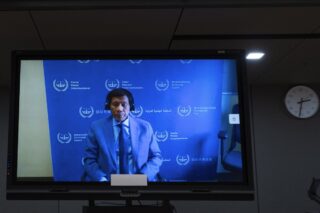The Department of Energy (DoE) is aggressively pursuing various policy reforms that will enhance the attractiveness of the current business environment for local and foreign exploration firms.
“We have started the process of awaking the sleeping giant that is the Philippines with the creation of Executive Order 60 last year. Hopefully, by the end of the year, we are able to streamline all the government processes in doing business in the Philippines,” said Energy Undersecretary Jose M. Layug Jr.
EO 60 was issued by President Aquino last year to establish the Philippine Upstream Petroleum Task Force, an interagency body that will serve as a one-stop-shop for investors in the upstream oil exploration and development industry. Its primary thrust is to provide support mechanisms for all those who are undertaking exploration activities in the Philippines.
According to Layug, the executive order would address one of the more daunting challenges currently being faced by investors—that of securing about 200 permits from various government agencies and offices that often took at least a year to complete, provided there is no opposition to the proposed projects, in which case the waiting period will stretch out even longer.
One of the targets under EO 60 was to be able to effectively streamline the process and cut it by half, or to six months, Layug said.
Although the government has a long way to go before it can fully achieve the targets of EO 60, improvements were already evident, according to Layug.
The DoE, for one, has already cut down the process of issuing tax exemption certificates from the previous prescribed period of five to six weeks, to the current processing period of two to three weeks, while the Department of Environment and Natural Resources has reportedly committed to reduce the processing time for permits issued for upstream petroleum projects.
The Department of Justice has already issued a circular that eases the issuance of permits for foreign contractors, primarily allowing them to secure working visas even before they arrive in the Philippines.
Layug also pointed out the increased coordination among various agencies concerned with upstream oil and gas projects, including the Department of National Defense, the Philippine Coast Guard and the Philippine National Police.
“In fact, we have drafted the rules on safety and emergency. We are now finalizing it for proper coordination,” he added.—Amy R. Remo



